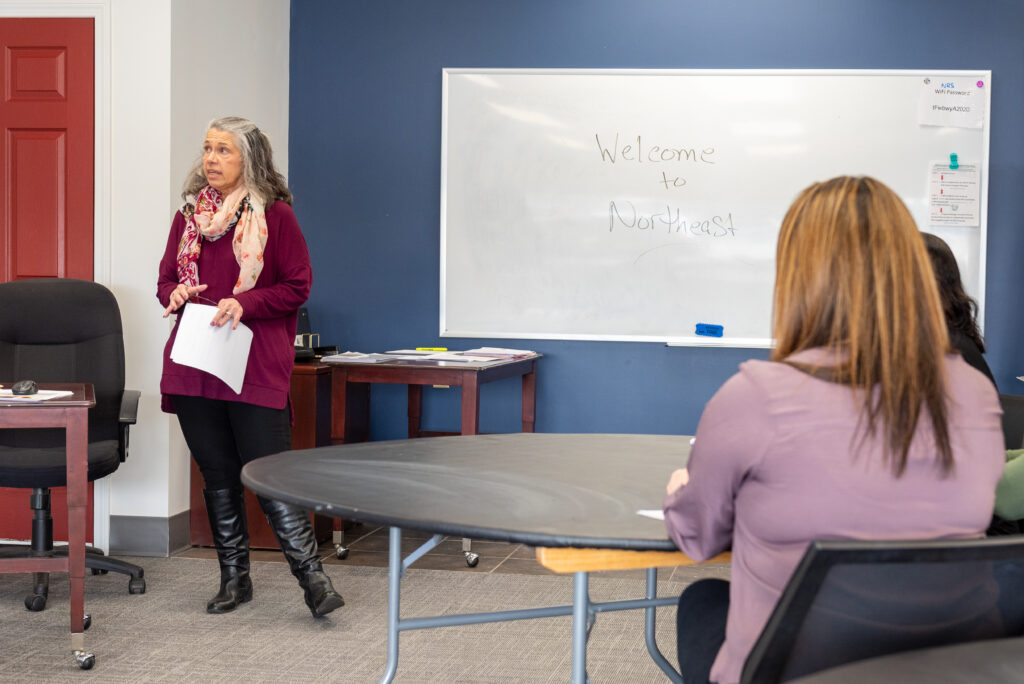Stephanie shared her story as part of MECEP’s Closing the Gap: Maine’s Direct Care Shortage and Solutions to Fix It report. Click here to read the full report.
Stephanie has worked in the field of developmental disabilities, intellectual disabilities, and autism for 31 years. She has worked in day programs and residential care facilities, and now trains other direct support professionals. Stephanie is a member of the Direct Care and Support Professional Advisory Council.
For my first eight years as a direct support professional, I worked two full-time jobs with very little time off. That’s how we had to do things because that’s how I had to pay my bills. I loved what I was doing. I still do. But it impacted my personal life terribly. It’s the same for the people that I’m training now. They often have two or three jobs because the pay is so poor. Without that good pay, people aren’t going to stay. They’re going to leave for a better paying job.
I see people in similar roles in other fields making far more than I do. My sister is a physical therapist in a hospital, and she makes $52,000 more than I do. My other sister is a teacher, and she makes $30,000 more. I think that shows an undervaluing of the people we support, not just an undervaluing of those providing the support. We are looking after your mother and your grandmother. What do you think your mother and your grandmother are worth?
To attract and keep workers, we need to be looking at the cost of living. We have to take that into account when we determine what is a reasonable wage. Once people are in the door, keeping them involves making people feel valued, and recognizing what they do. It’s providing support with child care and health insurance, and making sure people can take care of themselves so that they can provide the best care for others. If we can see progress on wages, benefits, and respect, I think it will draw in more people who will come in and stay. Because people could sustain their life, and people stay in jobs that sustain their life.
When you work with individuals with disabilities, you see the impact in their quality of life. People who don’t have good caretakers tend to have more health issues. They tend to have more interfering behavior issues, where they spend more time trying to get their needs met than they do just living a good, happy life. People who have good caretakers are happy. They’re going out and doing things. They’re healthier. A person with a disability is always going to have that disability. But they could be healthier because they’re happier. And that’s what a good care team can do.
My mom also worked in this field, and when I started she tried to talk me out of it. She told me I’d never make a livable wage because she also had a hard time doing it. But most of the people who get into this line of work aren’t doing it for the money. We do it because we want to care for people who can’t care for themselves.
That’s why I still do it, and that’s why I thank people who are still here doing this devalued job. Because if they weren’t here, the people they support wouldn’t have the care they need.




